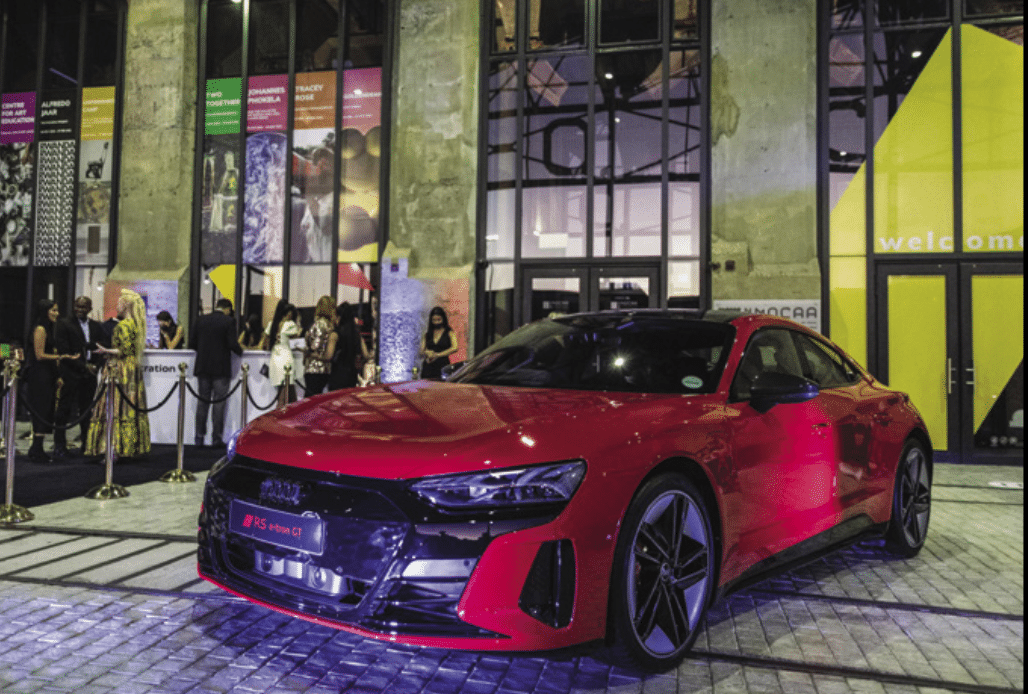The South African electric vehicle (EV) landscape is set to accelerate in 2022 with a slew of new models. But with all its power and load-shedding issues, is South Africa ready?
By Nafisa Akabor
THE SOUTH AFRICAN EV MARKET IS ON THE FAST lane. Audi launched its highly-anticipated electric e-tron range in Cape Town at the end of February, bringing six new additional models to the market.
Mercedes-Benz is slated to bring in at least five EQ models throughout the year, alongside multiple offerings from BMW i and Volvo. These new EV models will more than double the limited selection currently available from Jaguar, Mini, Porsche and BMW.
In addition to its new EVs, Audi is the first manufacturer to roll out high speed 150kW DC chargers that will yield a ±340km range from a 30-minute charge; and fast 80kW DC chargers that yields ±185km within 30 minutes. They will be strategically located at major highways along the N1, N2, N3 and N4. Prior to this, the maximum DC charge rate across SA was 60kW.
Loading...
Volkswagen has indicated it will bring the ID.4 to SA in 2022 but only for research purposes to gain insights from its customer base. Steffen Knapp, Head of Volkswagen Passenger Cars, tells FORBES AFRICA it has taken a different strategy to its EV rollout in South Africa.
“Our approach is to get as many of our customers to experience EVs as possible before we sell them in the local market. Volkswagen would be selling a higher volume than the premium brands currently in the market; we need to ensure that our customers are ready for EVs,” says Knapp.
VW first brought in a fleet of e-Golfs in 2020 for testing between dealers, fleet and corporate customers, potential customers, and media. Knapp adds: “We believe this is an important step when it comes to changing beliefs surrounding EVs like range anxiety, cost of ownership, etc.” As such, VW cannot confirm exactly when it will launch its EVs in South Africa.
Also taking a similar approach is Toyota South Africa. At its annual State of the Motor Industry conference in February, the company indicated that it will be a while before it brings EVs to the local market due to lack of government incentives, cost, and South Africa’s unique problems.
Chief scientist at Toyota, Dr Gill Pratt, opines there is a lot of coal-fired power generation in South Africa and there are also places where power reliability is not very high.
“In order to have a system that encourages the use of battery electric vehicles more, the power grid has to be reliable; it has to have the capacity in order to recharge all of those cars,” said Pratt at a press conference in Johannesburg.
He believes there are two different issues; one being average power for charging at night, and the other is the ability to provide power during peak hours for level super-fast chargers (150kW).
Winstone Jordaan, Managing Director at GridCars, says he understands the concerns for load-shedding, but it does not affect EV drivers as much as people believes it does.
“Unlike your home which is immobile, your car is not; so, if there is load-shedding in one area and you are in a situation where you have to charge at that specific time, you could simply drive to another area or charger where there is no load-shedding,” says Jordaan.
He adds that if you were charging at home overnight and load- shedding occurs, your EV would simply continue to charge when the load-shedding stops.
“If you are planning a long-distance journey and concerned about encountering load-shedding, you can plan around the load- shedding schedules.”
GridCars has partnerships with manufacturers such as Jaguar, BMW, Mercedes-Benz, Mini and Audi to roll out its charging infrastructure to service the local market. Its ChargeStations.co.za portal will incorporate load-shedding schedules as well as the ability to check which chargers have generators or back-up batteries.
Loading...
